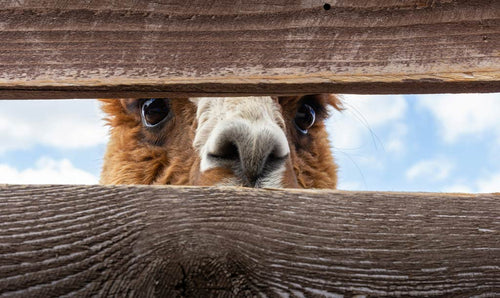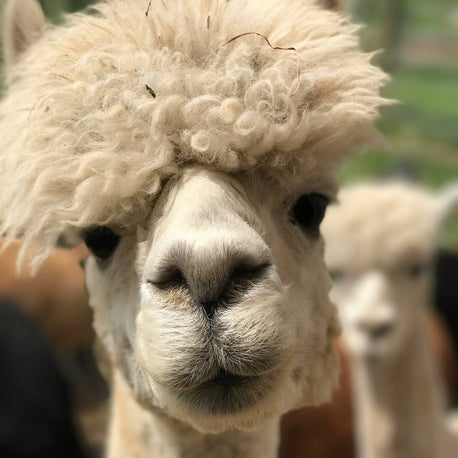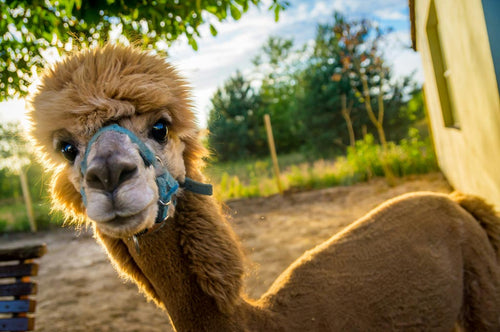Lifestyle Farming with Alpacas
Alpacas are superb animals to farm as they are intelligent, easy to handle and very hardy. Compared with most other livestock species they need less routine maintenance and do not suffer from many of the scourges, such as footrot and flystrike commonly associated with sheep farming. There is no need for crutching, tail docking, or dipping. For those prepared to get stuck in and get a little dirt under their nails, alpaca stock tasks are not hard to learn.

Dating back to the 80s, a unique farming endeavour had been gaining traction among enthusiasts and hobbyists alike - lifestyle farming with alpacas. Combining the tranquility of rural living with the charm and profitability of alpaca husbandry, this niche sector has carved out its place in the Kiwi agricultural scene. Let's delve into the history, husbandry practices, feeding requirements, healthcare considerations, and the delightful nature of these graceful creatures.
History
Alpacas, native to the Andes Mountains in South America, were first introduced to New Zealand in the 1980s. Initially brought in for their luxurious fleece, which is prized for its softness, warmth, and hypoallergenic qualities, alpacas quickly captured the hearts of New Zealanders with their gentle disposition and adaptability to various climates.

Nature
Known for their calm and gentle demeanor, alpacas have endeared themselves to farmers and hobbyists alike. Their curious and sociable nature makes them delightful companions, with each animal possessing its own distinct personality.
Alpacas communicate through a variety of vocalizations, including humming, which they use to express contentment or communicate with other herd members. They are highly intelligent and can form strong bonds with their human caregivers, often enjoying gentle interaction and affectionate gestures such as neck scratches and ear rubs.
In addition to their charming personalities, alpacas are valued for their fleece, which is sheared annually in the spring. The fiber comes in a range of natural colors, from creamy whites to rich browns and blacks, making it highly sought after by artisans and textile enthusiasts for spinning, knitting, and weaving.
Husbandry
Lifestyle farming with alpacas involves the rearing of these camelid species in small-scale, family-owned farms. Alpacas are relatively low-maintenance animals, making them ideal for hobby farmers and those seeking a peaceful rural lifestyle. A typical alpaca herd consists of a small number of animals, usually between five to twenty, although some enthusiasts may opt for larger herds depending on available land and resources.
Housing for alpacas is minimal, with simple three-sided shelters or open-sided barns providing adequate protection from the elements. Fencing should be secure to prevent escapes and protect the alpacas from predators such as dogs.
Care
Alpacas make excellent animals for farming due to their intelligence, ease of handling, and resilience. Unlike many other livestock, they require minimal maintenance and are not prone to common issues like footrot and flystrike seen in sheep farming. Alpacas do not need procedures like crutching, tail docking, or dipping, making the life of an alpaca farmer both straightforward and fulfilling. By following a proper vaccination schedule, clostridial diseases can be effectively prevented. Crias receive their initial vaccine early on, with adults typically vaccinated every six months for optimal protection. Alpacas naturally keep internal parasite levels low by defecating in communal areas, reducing the need for frequent worming to once a year.
When kept alongside other livestock, their worming routine should align with that of the other animals. Alpacas, like other camelids, have soft padded hooves that leave minimal impact on the land, with toenails trimmed as needed. Dental checks are typically done during shearing, and supplementary feeding may be necessary during winter or for lactating females and newly weaned cria. Grass, high-quality hay, and alpaca pellets form the typical diet of New Zealand Alpacas.
Despite their size, alpacas are gentle and easy to manage once caught, making tasks like nail trimming straightforward. Those interested in learning more about alpaca farming can seek advice from the Alpaca Association NZ Incorporated.
Feed
The primary component of an alpaca’s diet is good-quality grass or hay. Alpacas graze on pasture, which makes them great lawnkeepers! However, in addition to pasture, farmers must make sure to supplement their diet with fresh water, mineral supplements, and specially formulated alpaca pellets (rumen nuts) or grain mixes to meet their nutritional needs.
Their diet should be supplemented with high-quality hay, especially during the winter months when pasture growth is limited. Additionally, providing access to fresh water at all times is essential for maintaining the health and well-being of the animals.

Healthcare
Regular veterinary check-ups, vaccinations, and parasite control are essential components of alpaca healthcare. Preventative measures, such as routine vaccinations for diseases like clostridial infections and annual dental examinations, help ensure the longevity and vitality of the herd.
One of the unique aspects of alpaca healthcare is their susceptibility to meningeal worm, a parasite carried by white-tailed deer. Proper pasture management and regular deworming protocols are crucial for minimizing the risk of infection.
In conclusion, lifestyle farming with alpacas offers a unique blend of agricultural pursuits and rural living in the picturesque landscapes of New Zealand. Whether for the joy of raising these enchanting creatures, the potential for a supplementary income through fleece sales, or simply the desire for a tranquil rural lifestyle, alpacas have found their place in the hearts and farms of Kiwis across the country.

